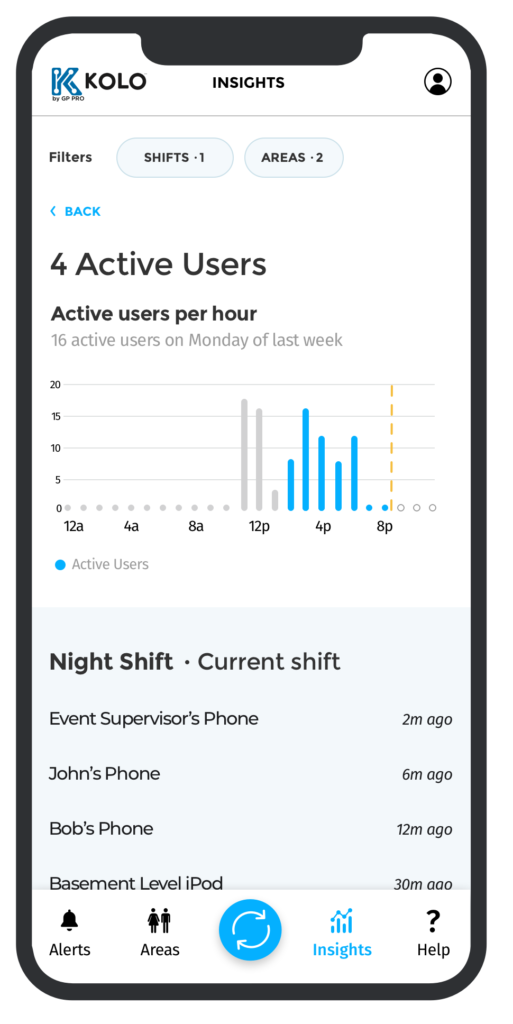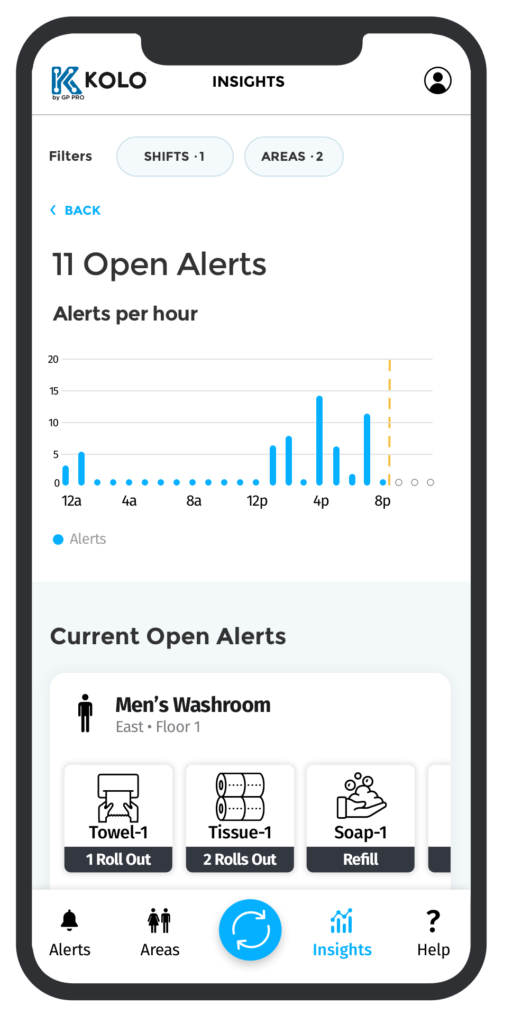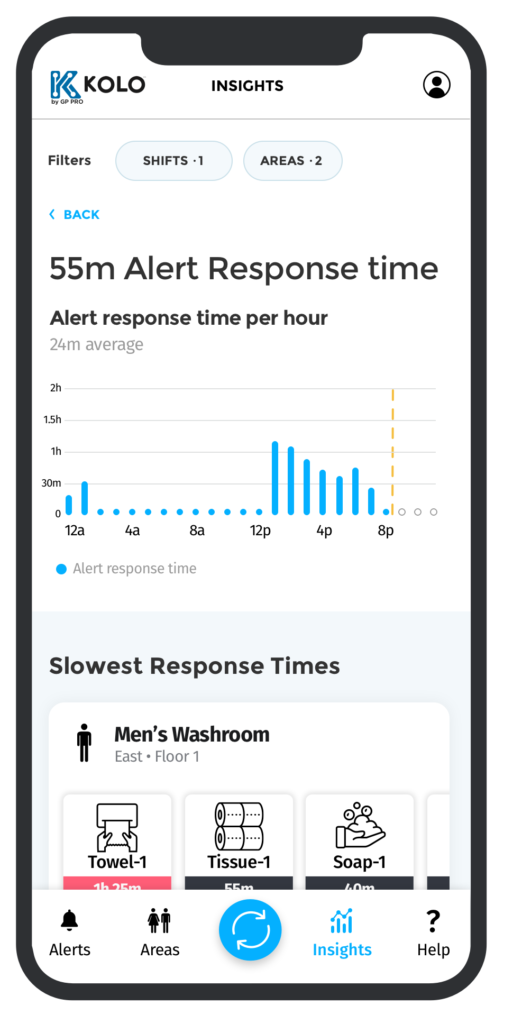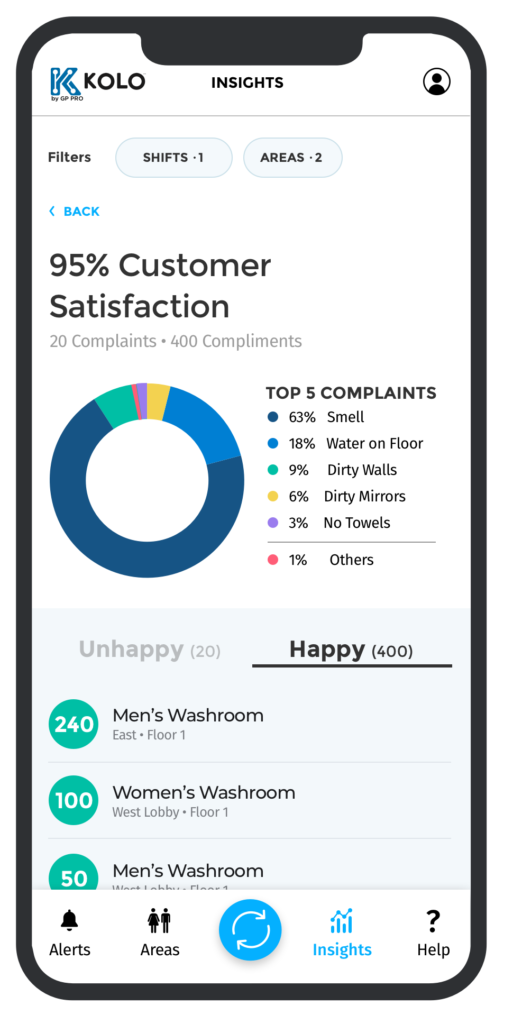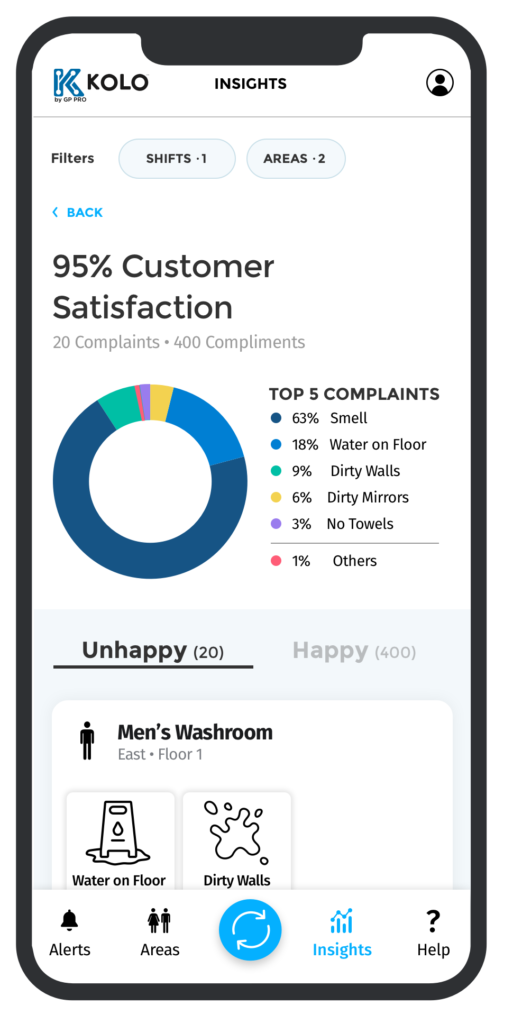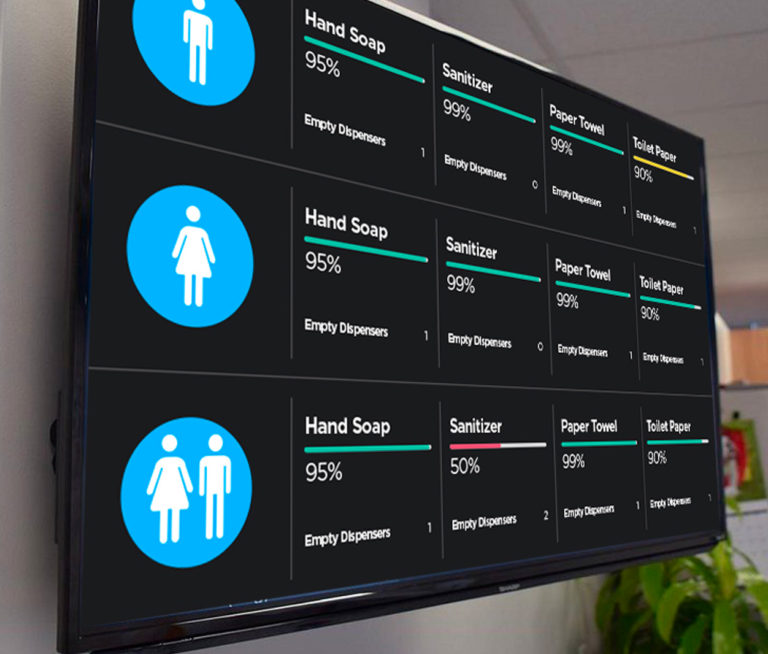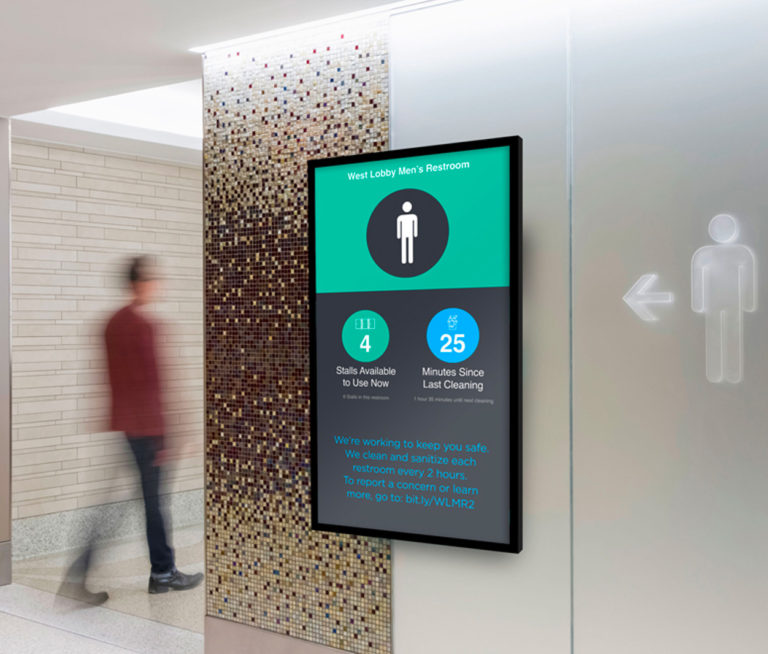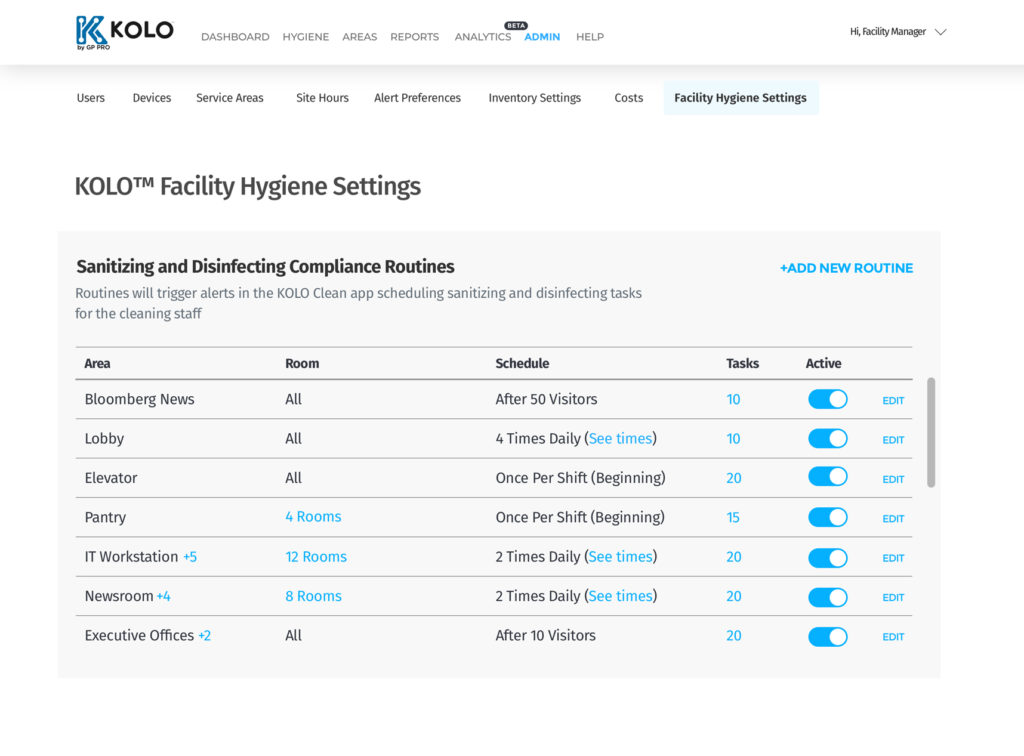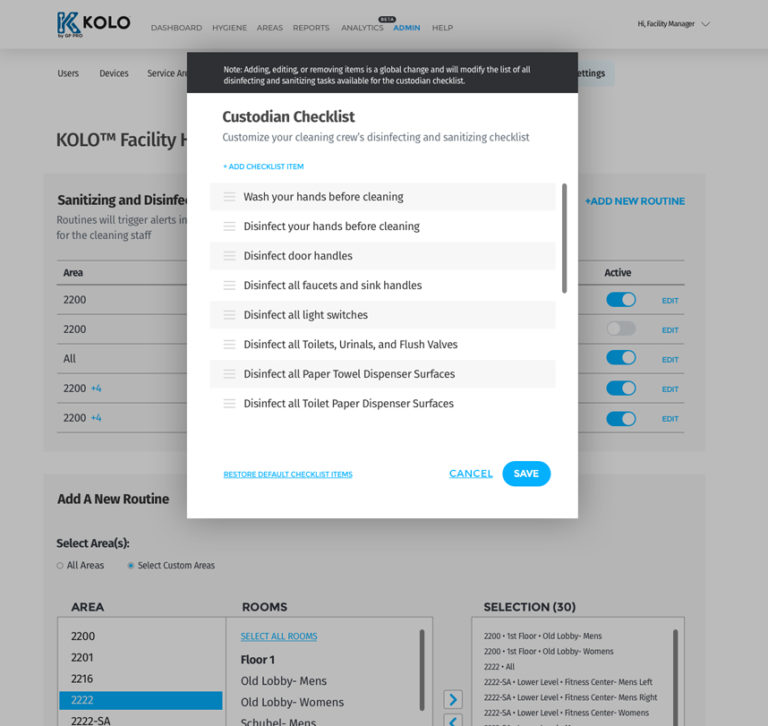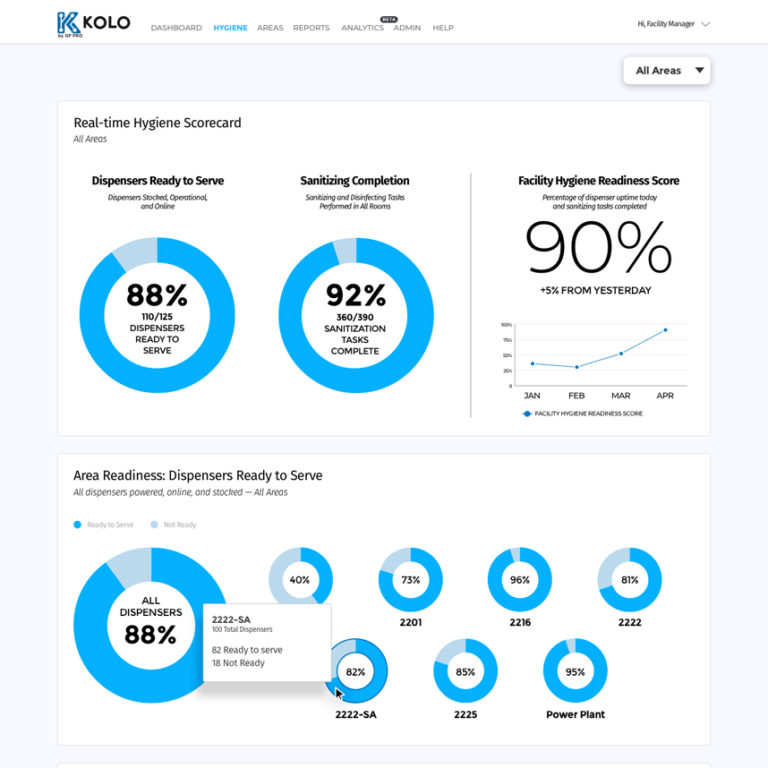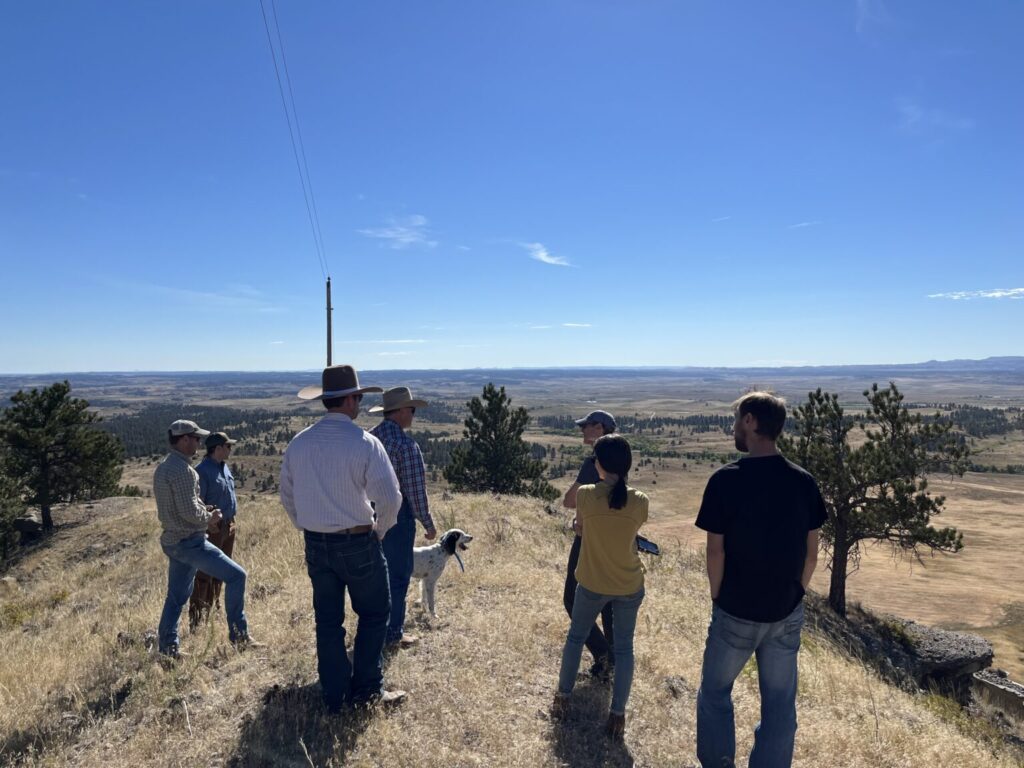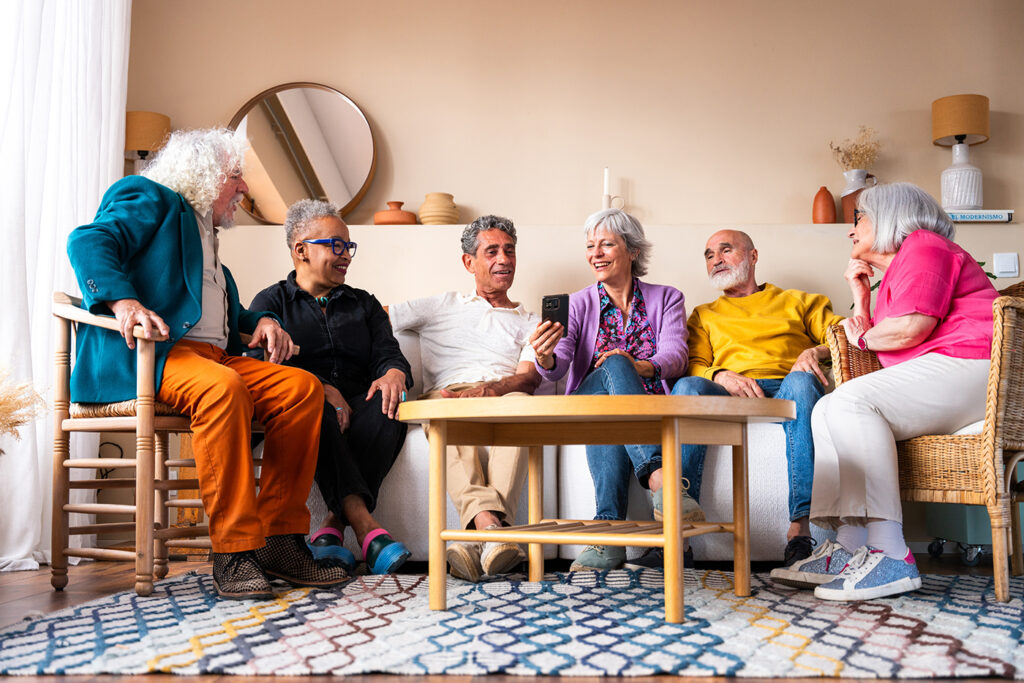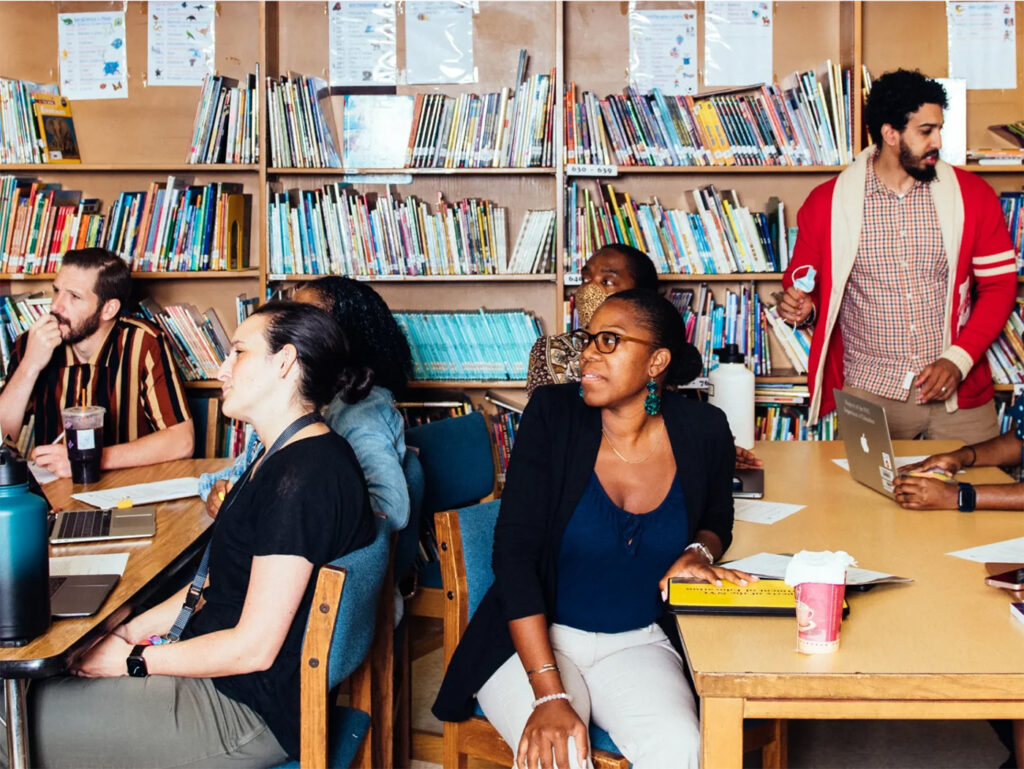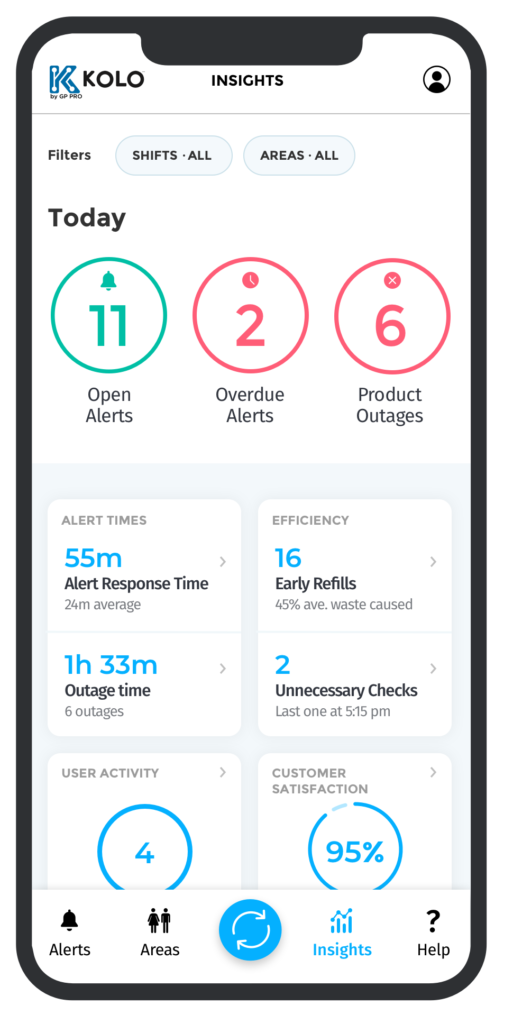
Reduce waste and water consumption while adding value to jobs.
The KOLO Smart Monitoring System is a native application and web-based dashboard that helps ensure dispensers are stocked and bathroom fixtures are functional. Its value proposition focuses on reducing paper waste, conserving water, operating efficiently, and addressing the most significant opportunity for custodial staff: Getting them out of the bathroom.
The innovative Internet of Things (IoT) product connects high-traffic public washroom fixtures to the Internet, enabling cleaning staff to monitor supplies like toilet paper, paper towels, soap, and hand sanitizer within dispensers, as well as monitoring flush valves and water flow for leaks, malfunctions, or blockages.
KOLO had one challenge: Increase engagement with the product. I took a human-centered approach to learning about the value of the KOLO System through the eyes of facility administrators, staff and managers on-the-go, and patrons through field research, prototyping, and testing. Using this research, we developed a product that custodians and managers love.

Challenge
Increasing engagement is a lot like solving a Rubik’s Cube: It’s impossible to solve one side at a time. The six sides of our Rubik’s Cube we needed to solve for were Platform Features, User Experience and Design, Delivering Value, Onboarding, Change Management, and Showing Proof of Efficacy. Raising engagement isn’t a simple challenge, and we wanted to look at the greatest points of leverage to reduce the barriers to engagement while developing a product that delivered the greatest value for all of its different users. These six areas became our focus.
A data-rich platform
The KOLO System collects real-time data across an entire facility, and there are numerous applications for that data—from creating traffic flows to cleaning routines, reporting on product consumption to customer satisfaction, and measuring engagement to monitoring progress. However, not every platform feature delivered the same value to each customer. And so we set out to understand how the KOLO System could be customized to deliver the right value in the right setting through its features.
Delivering value meant understanding what success looked like for customers, and that was different from place to place. The Atlanta Airport was focused on customer satisfaction and the traveler’s experience, while Expedia was focused on creating a clean and healthy workplace. In addition to facilities being different, the buyers and users were had vastly different needs.
To better understand our audiences, we created Personas (for users), Buyer Archetypes (for decision-makers), and Placeonas (to capture the differences among facilities).

Approach
To achieve some quick wins and quickly boost engagement, we conducted a heuristic analysis of both KOLO Clean (the app utilized by custodians) and the KOLO Central dashboard (used by facility managers). Throughout the project, we continued to improve both the user experience and design of the platform through agile updates to the user interface.
We also tested numerous report prototypes to learn from customers how they would use specific data visualizations and reports to optimize cleaning routines, staff schedules, and operations.
THE BIG PIVOT
COVID-19 & Reopening
As the COVID-19 pandemic emerged in the spring of 2020, we shifted our focus toward understanding customer reopening strategies. In response, we explored how the app could assist cleaning staff in navigating a job that now entailed significantly higher risk than usual. Within a week, we had spoken with various facilities and developed a Hygiene Dashboard concept, enabling users to monitor hand sanitizer uptime and supply levels, develop custom cleaning routines, and report on statuses to the public.
The Results
88% of custodians surveyed said the KOLO System helps them work more efficiently
88%
81% of custodians surveyed said that the KOLO System’s technology makes it easier for them to serve customers
81%
87% of custodians surveyed said that they would recommend the KOLO System to another business
87%
Global electronics manufacturer Molex reduced paper towel and toilet paper outages from 60 per month to just 7, an almost 90% decrease in outages
90%
My Role:
- Conducted on-site research, interviews, and usability studies at the Atlanta Airport, Expedia, as well as arenas, community colleges, and convention centers.
- Developed personas, placeonas, and buyer archetypes to help guide our understanding of the diverse range of users and customers.
- Developed a strategic framework for addressing the various challenges that stood in between users and engagement.
- Developed prototypes, conducted usability studies, and created UX and visual design for both the native app and web-based dashboard that contained reports and insights.
- Developed multiple report prototypes for managers to guide our work on creating custom reports, and conducted user tests and reported the results to the client team.
Other Contributors:
- I worked alongside the client’s product management, engineering, business analysis, and sales teams.
Related Case Studies


